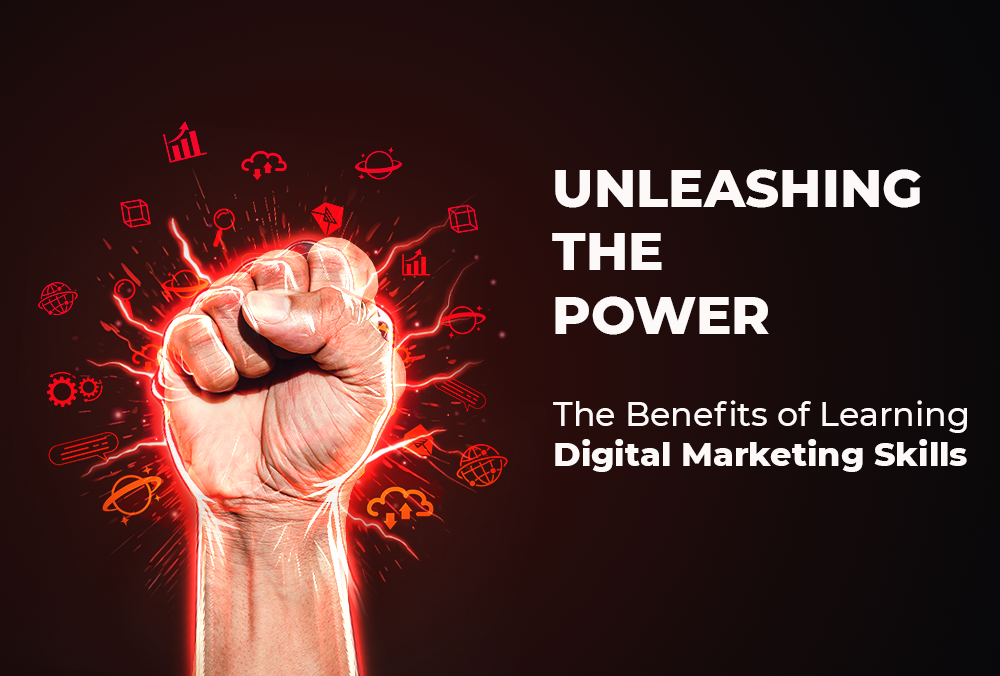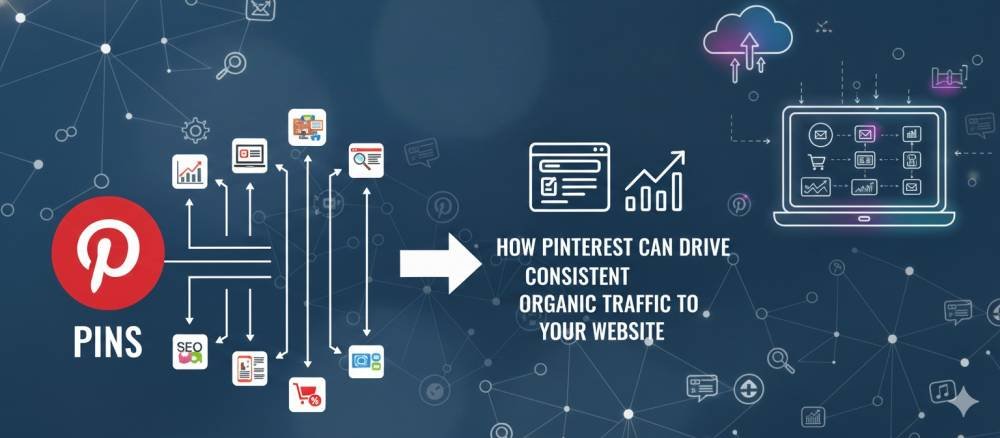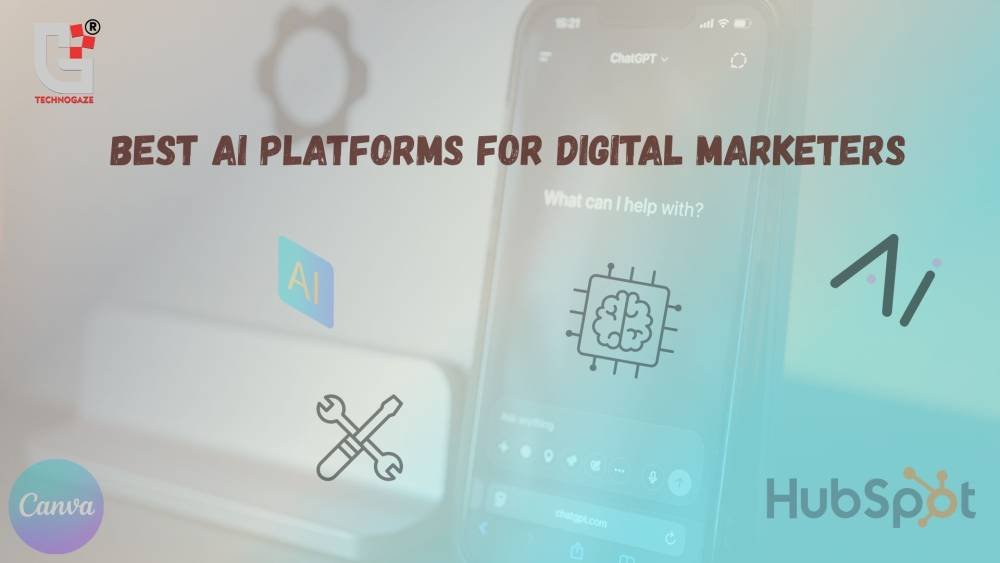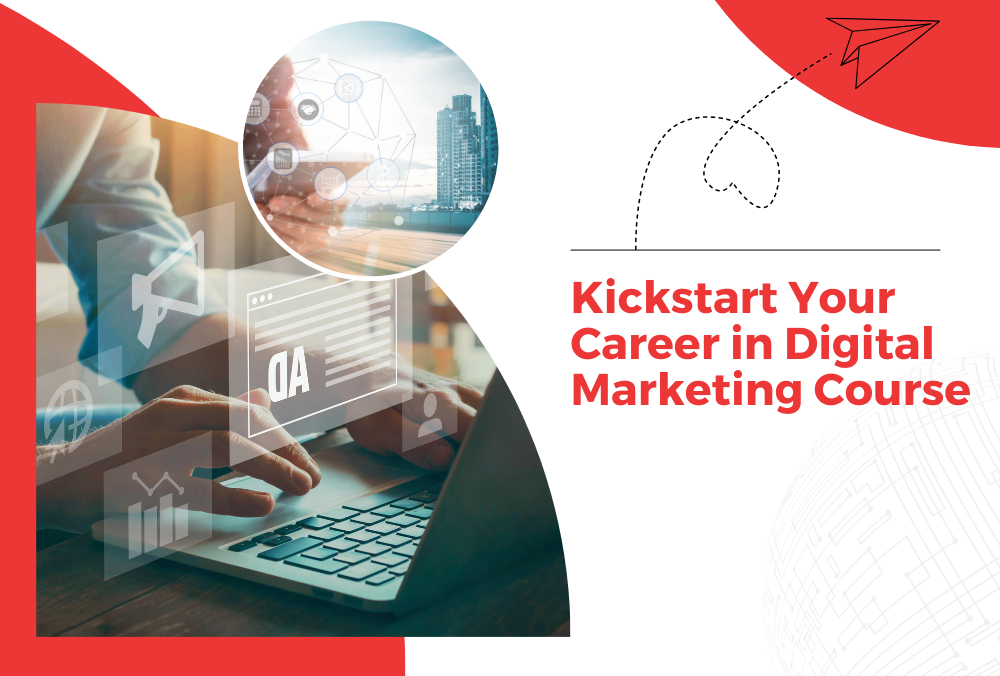
In today's digital era, the demand for skilled digital marketers continues to grow as businesses rely more on digital channels to reach their target audiences. This comprehensive guide will explore the benefits, key features, and considerations of such courses and how they can kickstart your career in Digital Marketing.
Understanding Digital Marketing
Digital marketing encompasses various strategies and tactics used to promote products or services through digital channels. These platforms consist of search engines, social media sites, email marketing, content marketing, and different other mediums. With the digital landscape constantly evolving, there is a growing demand for professionals who possess up-to-date knowledge and practical skills in digital marketing.
Benefits of Digital Marketing Course
1. Comprehensive Curriculum:
A digital marketing course with 100% placement assurance typically covers a wide range of topics essential for a successful career in digital marketing. These topics may include search engine optimization (SEO), social media marketing, email marketing, content creation, analytics, and digital advertising. By gaining expertise in these areas, you'll be well-prepared to tackle the challenges of the digital marketing industry.
2. Experienced Instructors:
One of the key benefits of such courses is learning from experienced instructors who are experts in the field of digital marketing. These instructors provide valuable insights, real-world examples, and hands-on guidance that can significantly enhance your learning experience. Their expertise and mentorship can help you develop practical skills and industry knowledge.
3. Practical Projects and Hands-On Experience:
A digital marketing course with 100% placement assistance often includes practical projects, case studies, and simulations that allow you to apply your learning in real-world scenarios. These hands-on experiences help you develop practical skills, build a portfolio, and showcase your capabilities to potential employers.
4. Internship Opportunities:
Some courses offer internship programs or partnerships with companies, providing you with valuable work experience and exposure to industry practices. Internships allow you to work on real client projects, collaborate with industry professionals, and gain insights into the day-to-day operations of digital marketing roles.
5. Dedicated Placement Support:
The highlight of these courses is their commitment to helping you secure job placements after completion. They offer dedicated placement support services, including resume building, interview preparation, job referrals, and industry connections. This support is tailored to match your skills, interests, and career goals, increasing your chances of landing a job in digital marketing.
Comprehensive Course Curriculum
1) Overview of Digital Marketing:
The course covers various aspects of digital marketing including concepts, strategies, channels, and techniques.
2) SEO and SEM:
Understanding SEO (Search Engine Optimization) and SEM (Search Engine Marketing) is crucial for digital marketers as they help improve website visibility, drive organic and paid traffic, and enhance online presence to effectively connect with the desired audience and accomplish marketing objectives.
The key topics covered under SEO (Search Engine Optimization) and SEM (Search Engine Marketing) are:
SEO, or search engine optimization, is the process of improving a website's visibility and ranking on search engine results pages (SERPs) to attract more organic traffic. This involves improving the content, using the right keywords, and fixing technical issues to rank higher in search results and get more visitors without paying for ads.
1.png)
SEM, which stands for search engine marketing, is a paid advertising strategy used to promote websites by placing ads on search engine results pages (SERPs). This approach aims to enhance visibility and drive traffic to websites through paid placements on search engines like Google.
.png)
3) Social Media Marketing:
Understanding social media marketing is essential for businesses to connect with their audience, build brand awareness, drive engagement, and generate leads, ultimately leading to increased sales and business growth in the digital age.
The key topics covered under social media marketing are:
.png)
4) Email Marketing
Understanding email marketing is crucial as it allows businesses to communicate directly with their audience, nurture leads, build relationships, drive conversions, and achieve a high return on investment (ROI) through personalized and targeted email campaigns.
The key topics covered under email marketing are:
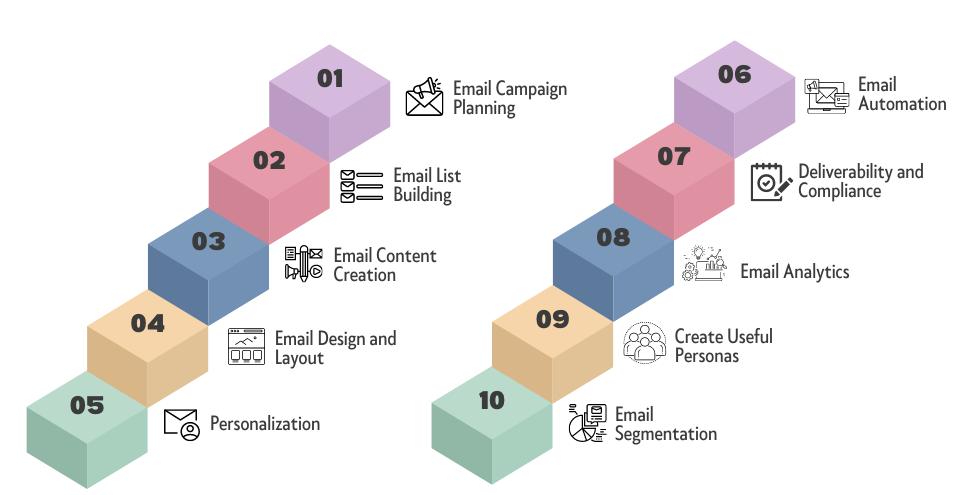
5) Content Marketing
Understanding content marketing is vital as it helps businesses attract and engage their target audience, build brand credibility and authority, drive website traffic, and generate leads, leading to increased conversions and customer loyalty in the digital landscape.
The key topics covered under content marketing are:
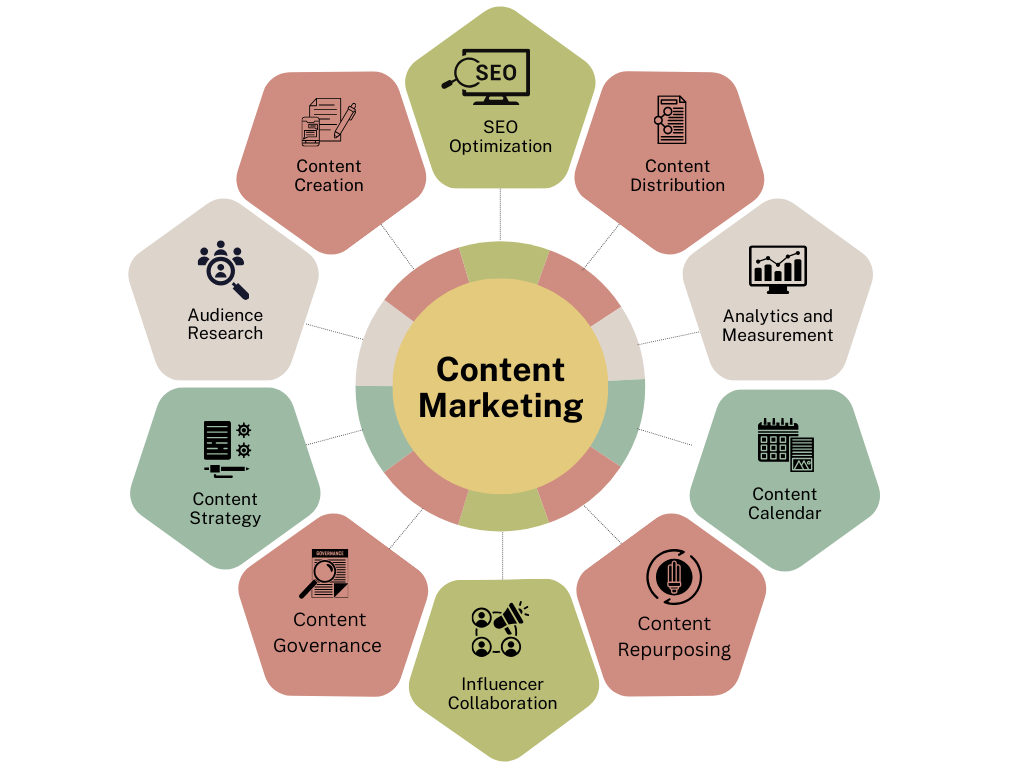
6) Digital Advertising
Understanding digital advertising is key as it enables businesses to reach their target audience effectively, increase brand visibility, drive website traffic, and generate leads or sales through various online platforms, ultimately maximizing ROI and achieving marketing objectives.
The key topics covered under digital advertising are:
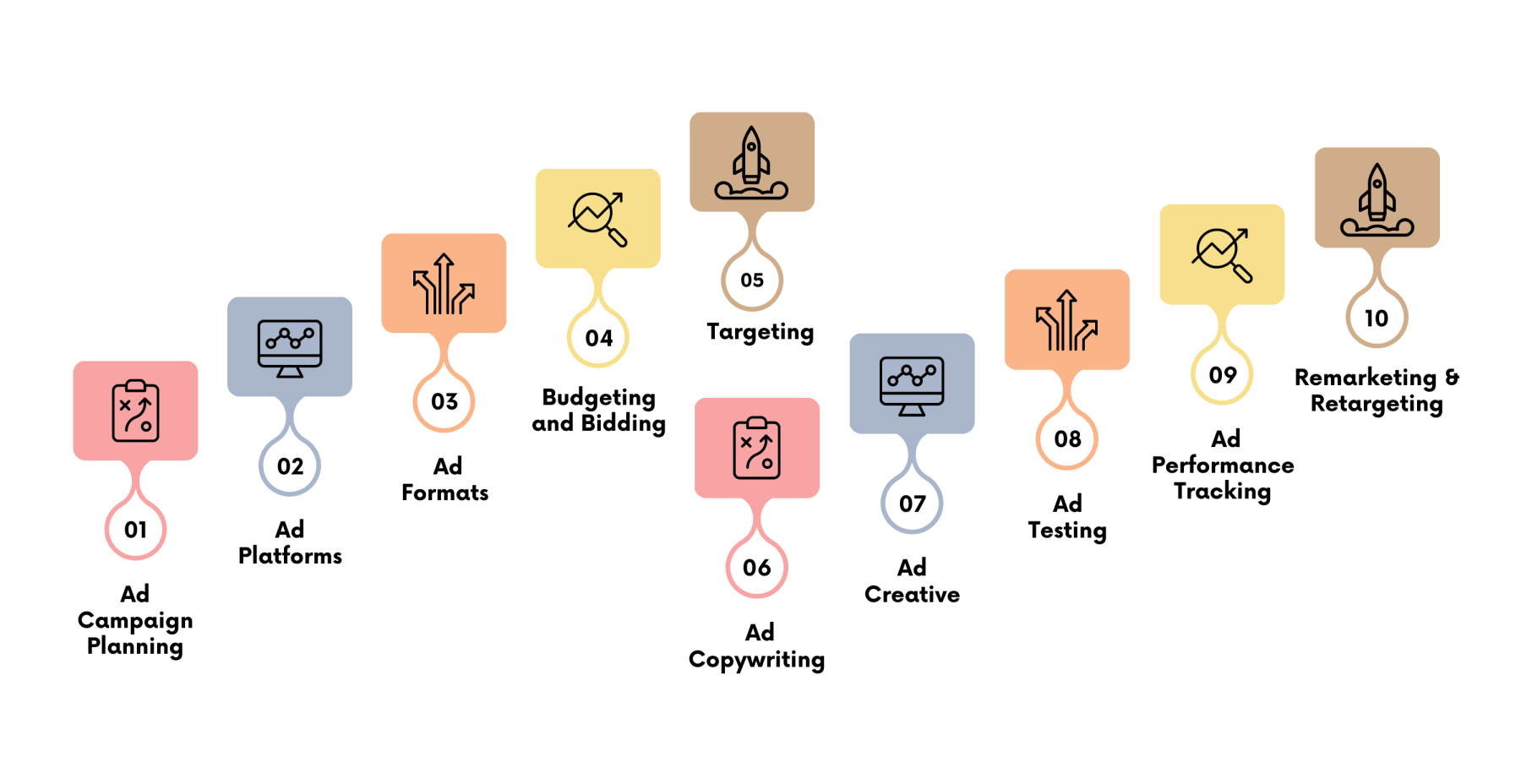
7) Web Analytics and Reporting
Understanding web analytics and reporting is essential as it provides valuable insights into website performance, user behaviour, and marketing effectiveness, allowing businesses to make data-driven decisions, optimize strategies, and improve overall digital marketing performance for better results and ROI.
The key topics covered under web analytics and reporting are:
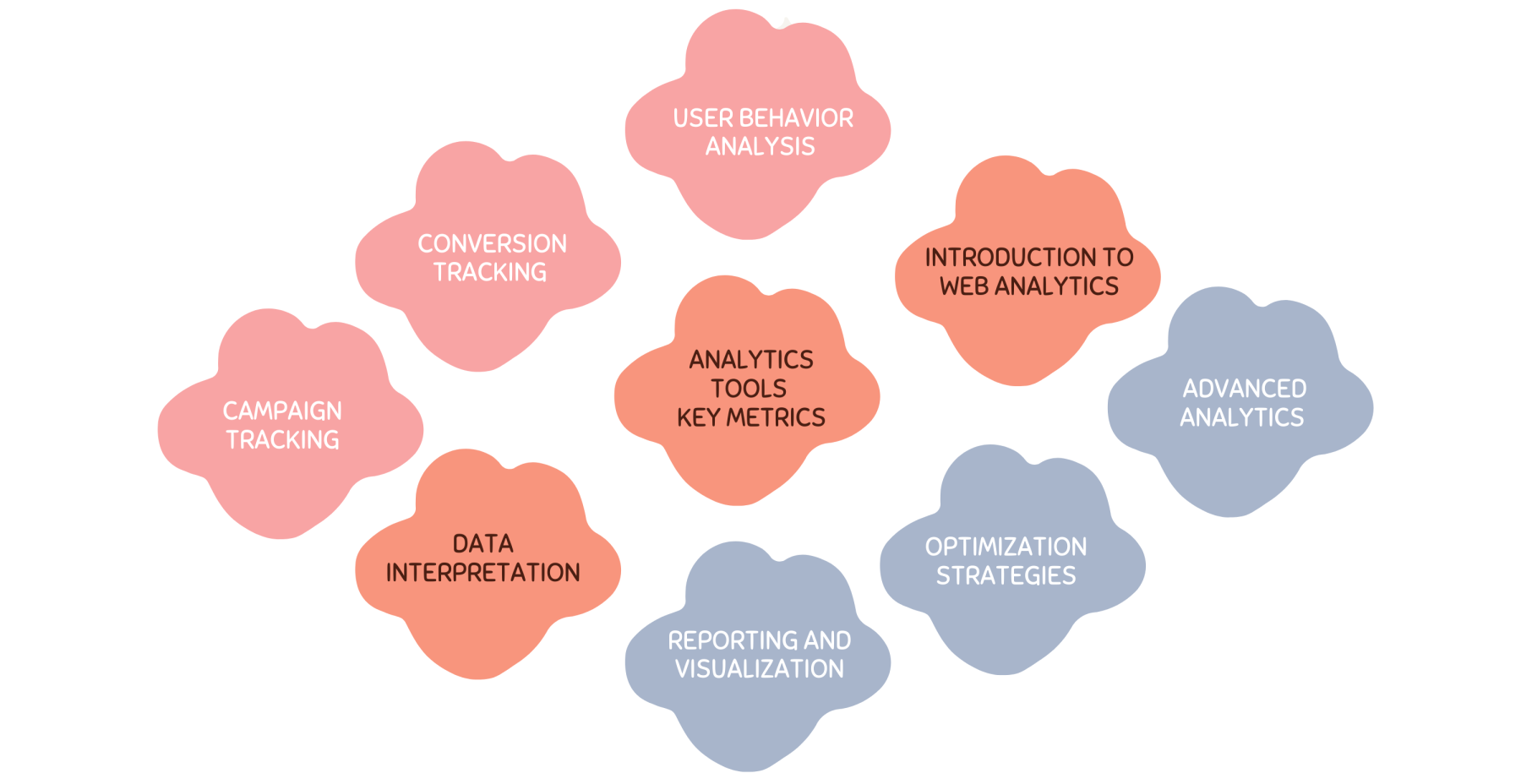
8) Conversion Optimization
Understanding conversion optimization is crucial as it helps businesses improve website performance, increase conversions, and maximize ROI by optimizing user experience, enhancing call-to-action strategies, and implementing data-driven tactics to turn visitors into customers effectively.
The key topics covered under conversion optimization are:
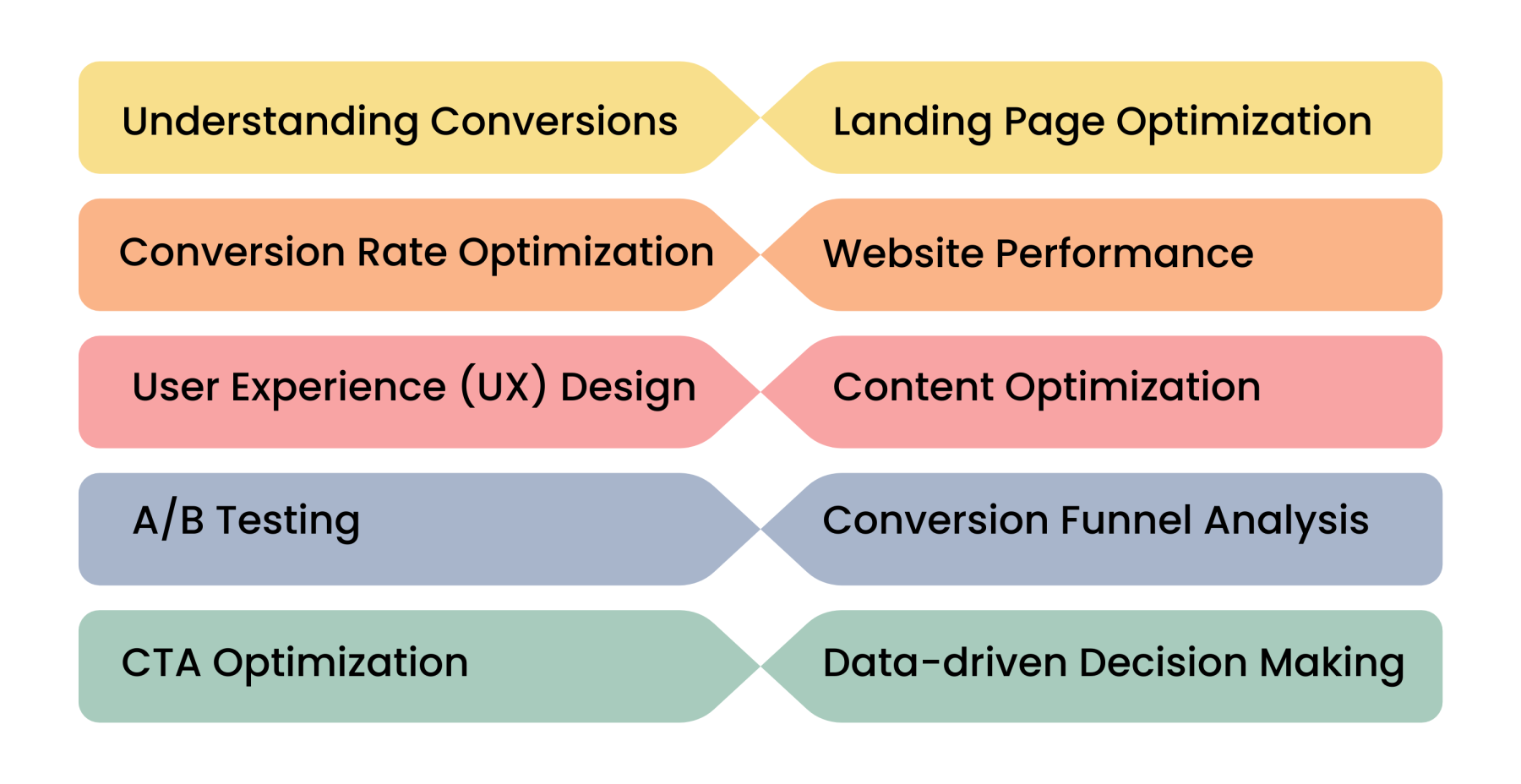
9) Mobile Marketing
Understanding mobile marketing is vital as it allows businesses to reach and engage with customers on mobile devices, leverage location-based targeting, and optimize user experiences, leading to increased brand visibility, customer engagement, and conversions in a mobile-first world.
The key topics covered under mobile marketing are:
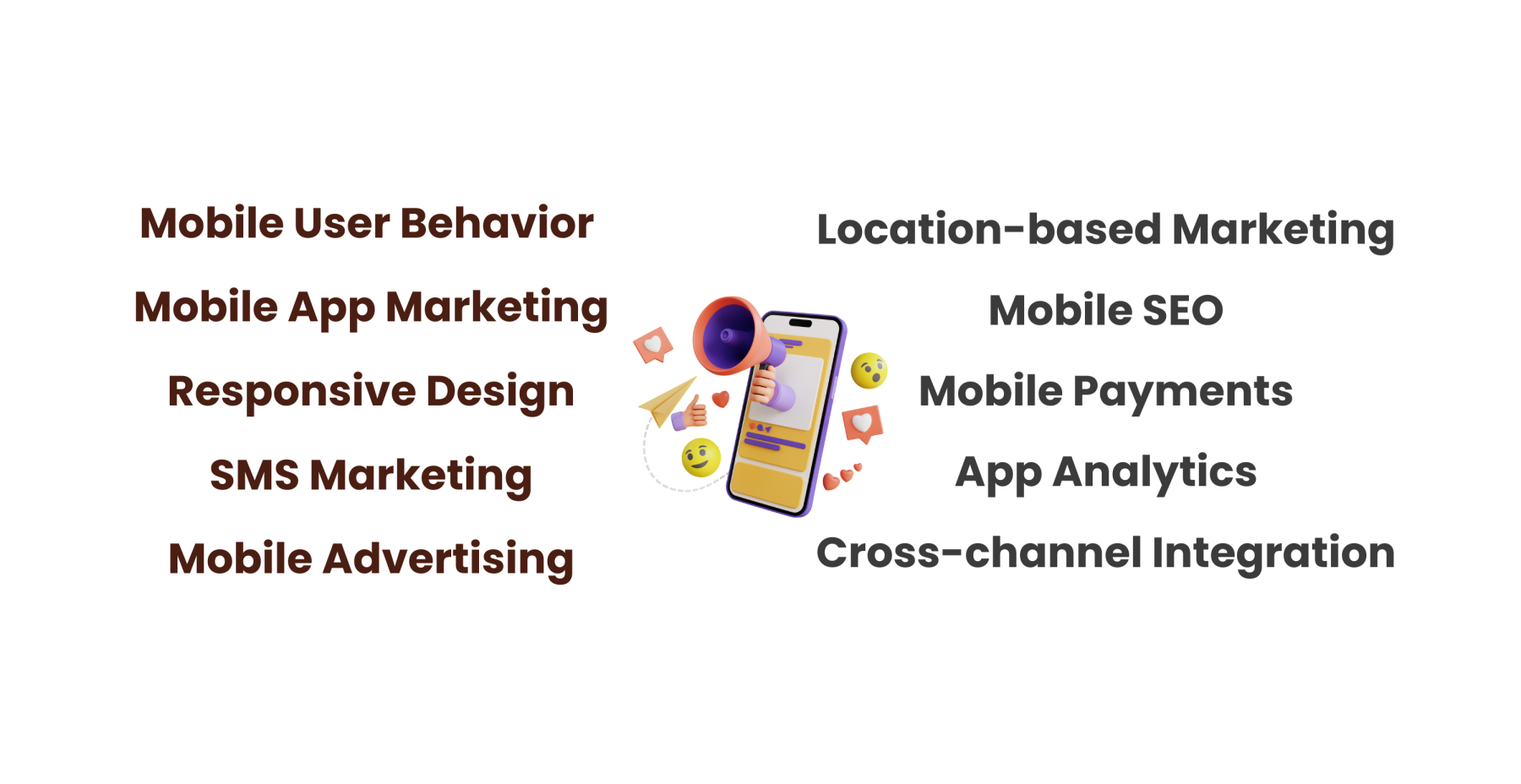
10) Online Reputation Management
Understanding online reputation management is crucial. It helps businesses monitor and maintain a positive brand image, manage customer feedback effectively, and mitigate potential reputation risks, ultimately building trust, credibility, and customer loyalty in the digital age.
The key topics covered under online reputation management are:
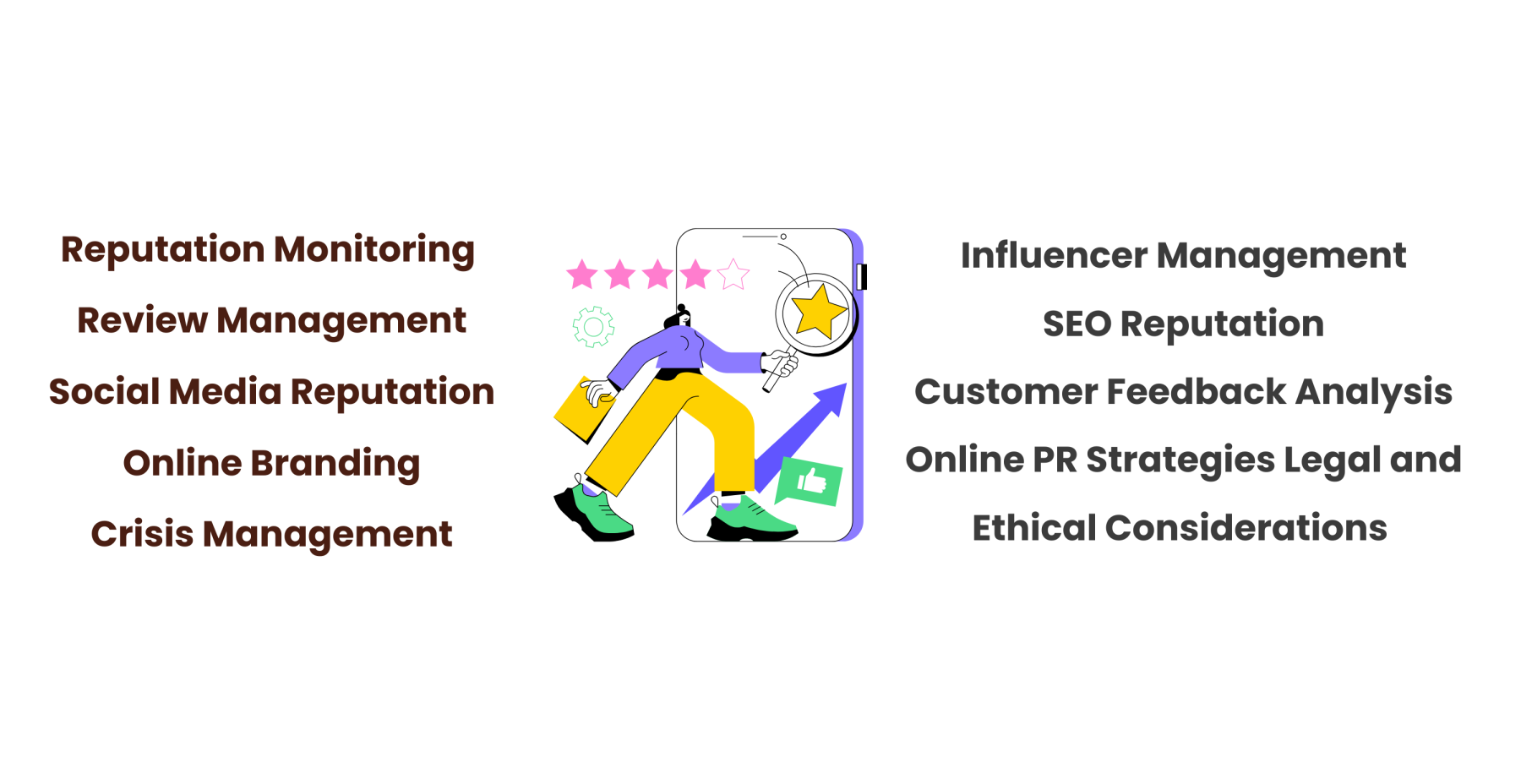
11) Dropshipping
Understanding dropshipping is important as it allows businesses to sell products without holding inventory, reducing upfront costs and logistical complexities, and making it easier to start and manage an online store effectively.
The key topics covered under dropshipping are:
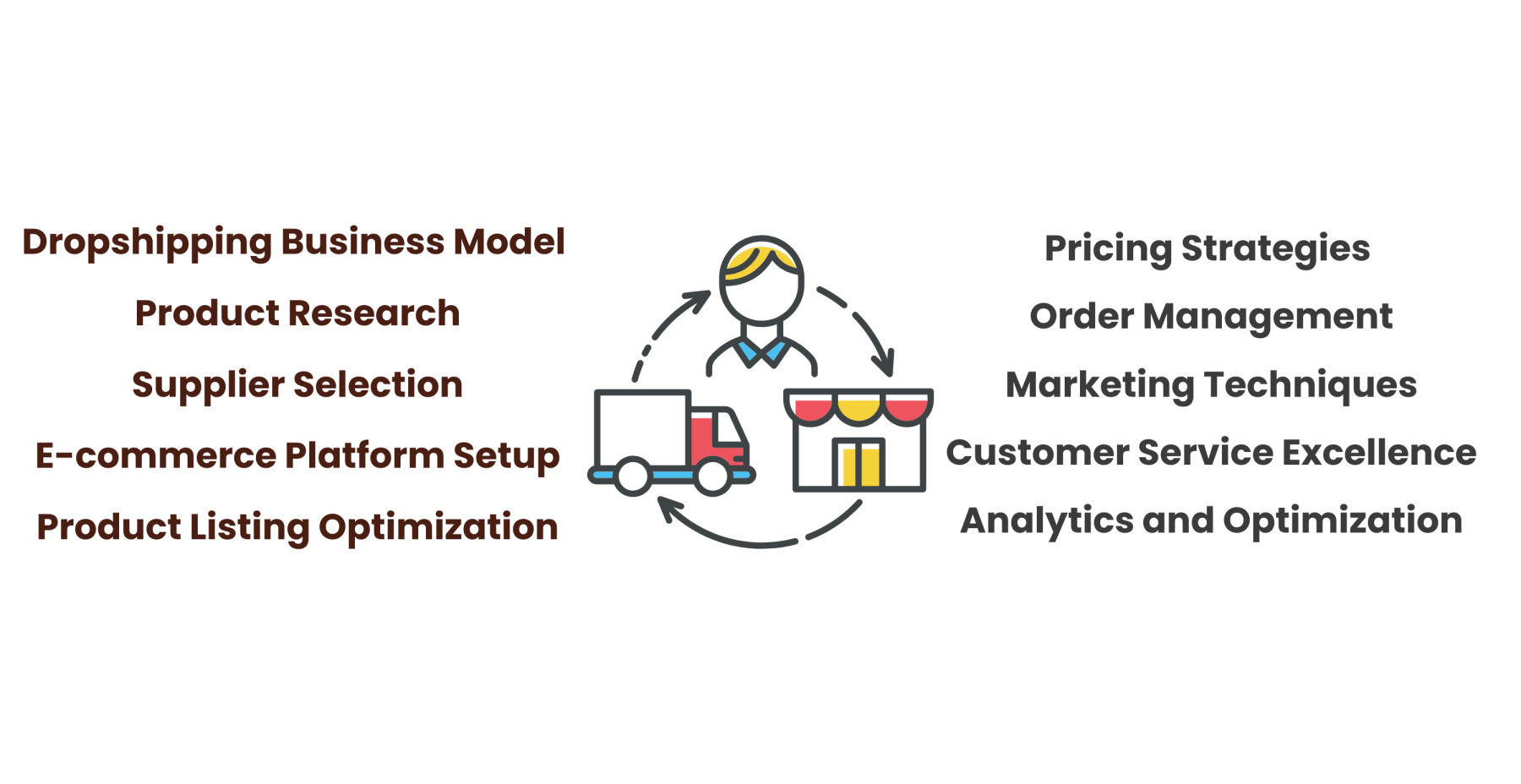
12) Affiliate Marketing
Understanding affiliate marketing is important as it enables businesses to leverage partnerships with affiliates who promote their products or services, driving traffic, sales, and revenue without upfront marketing costs, expanding reach, and boosting brand credibility.
The key topics covered under affiliate marketing are
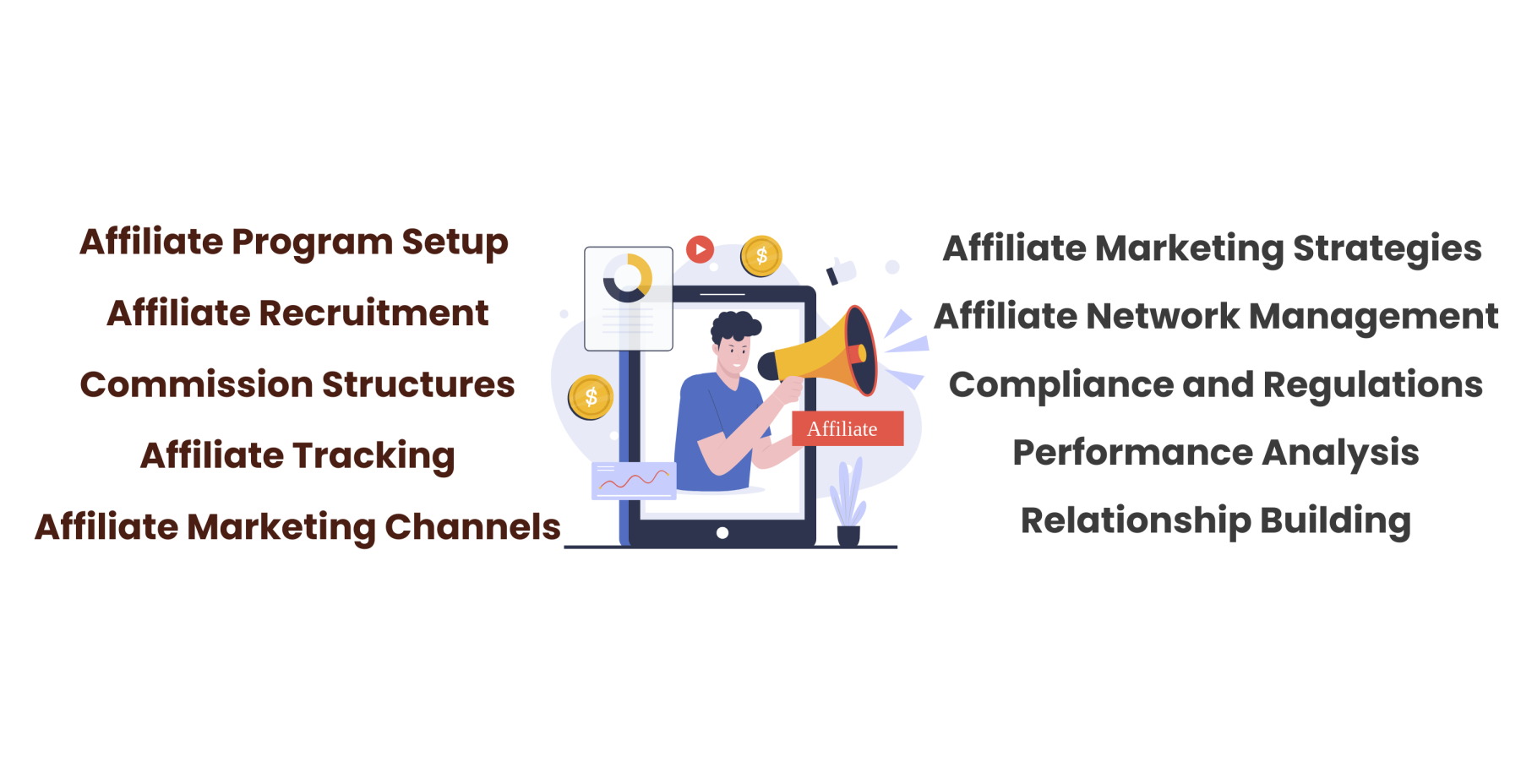
13) WhatsApp Marketing
Understanding WhatsApp marketing is crucial as it allows businesses to directly connect with customers, share updates, promotions, and offers, fostering engagement, building relationships, and driving conversions effectively on a popular messaging platform.
The key topics covered under WhatsApp marketing are
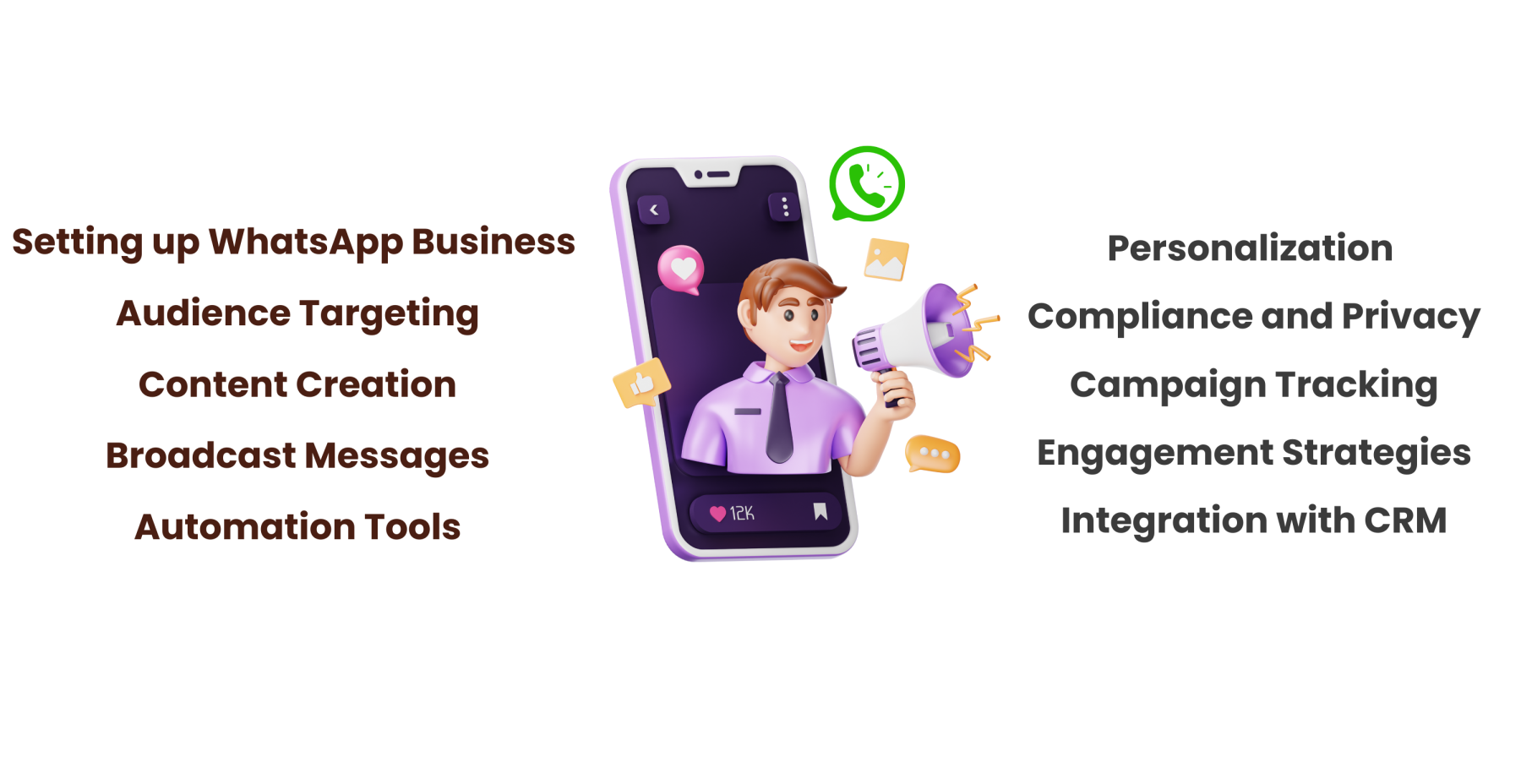
14) Freelance Guide
A guide for freelance digital marketers can help students gain skills and confidence, while also providing flexible and potentially high-earning opportunities. Integrating this guide into a digital marketing course can give students a well-rounded understanding of both traditional and freelance employment options, expanding their career possibilities in the field.
15) Agency Guide
A guide for digital marketing agencies is essential for students to succeed in agency settings. It helps students learn about agency operations, team collaboration, project execution, client management, and best practices. Students can gain hands-on experience and work with industry experts in fast-paced environments. An agency guide in a digital marketing course provides a holistic understanding of agency dynamics, preparing students for their future careers.
16) Organic Marketing
Understanding organic marketing is crucial as it focuses on building long-term, sustainable growth through content creation, SEO, and social media engagement, attracting and retaining customers naturally without relying solely on paid advertising, ultimately saving costs and fostering brand loyalty.
The key topics covered under organic marketing are:
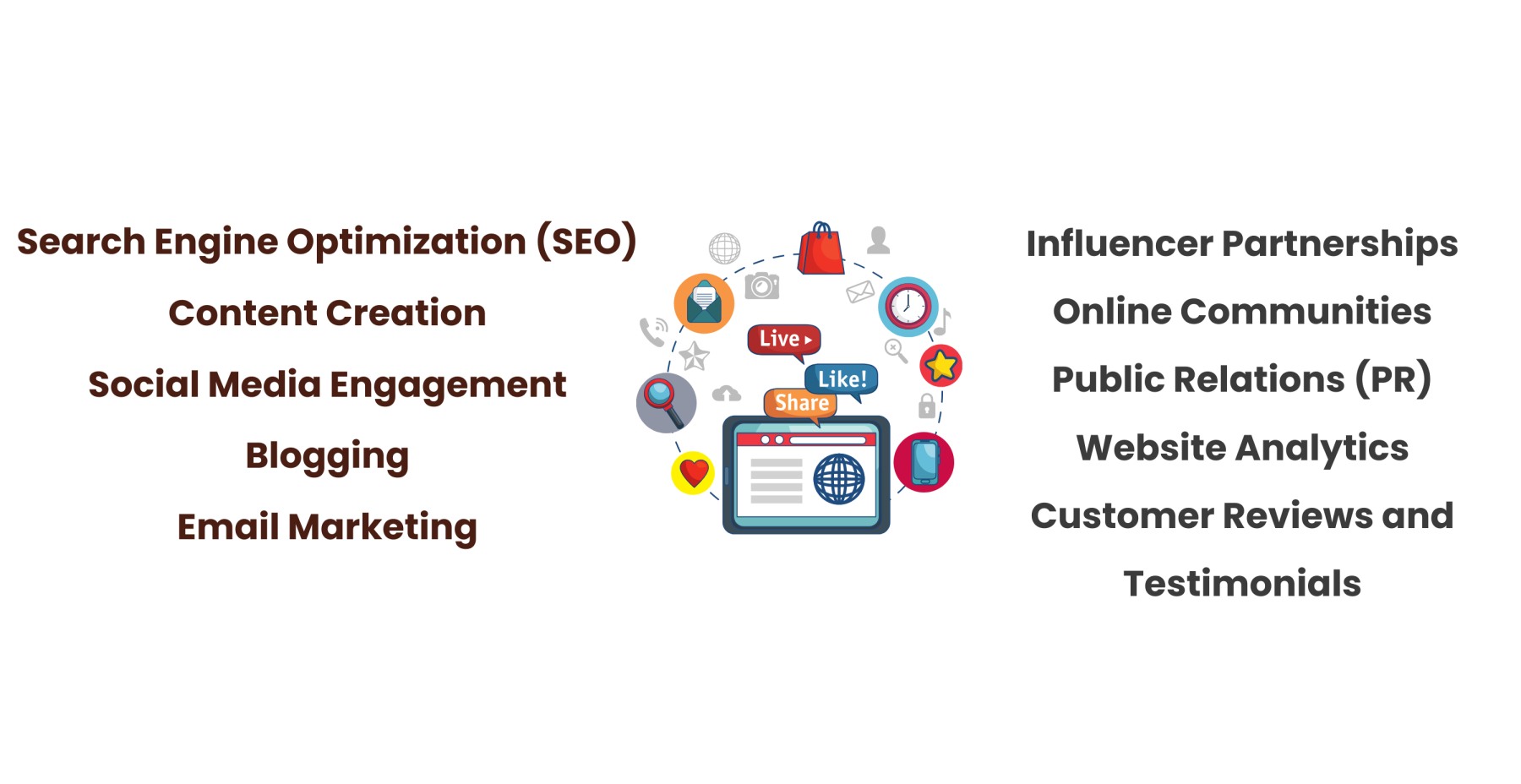
17) Paid Marketing:
Understanding paid marketing is essential as it enables businesses to reach targeted audiences, increase brand visibility, and drive traffic and conversions through paid advertising channels, maximizing ROI and achieving marketing goals effectively.
The key topics covered under paid marketing are:
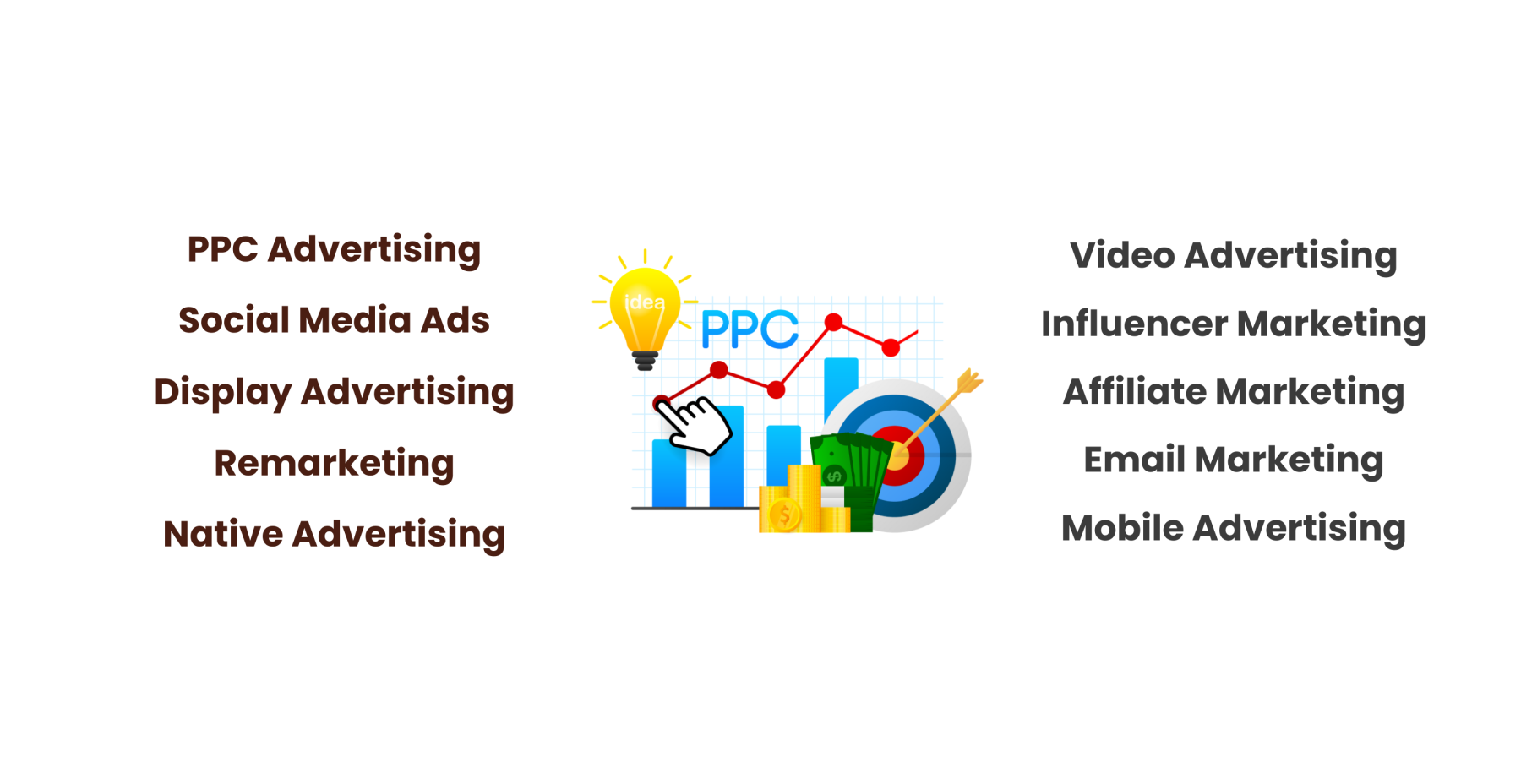
CONCLUSION:
A digital marketing course with 100% placement assurance can be a game-changer in launching your career in the exciting world of digital marketing. By equipping you with the right skills, practical experience, industry connections, and placement support, these courses pave the way for success and growth in the digital marketing industry.
Latest Posts
-
1
How a Social Media Marketing Agency Helps You Get Real Leads
February 13, 2026 -
2
-
3
Best Email Marketing Services in India: A Practical Comparison
January 20, 2026 -
4
How Pinterest Can Drive Consistent Organic Traffic to Your Website
January 19, 2026 -
5December 20, 2025



